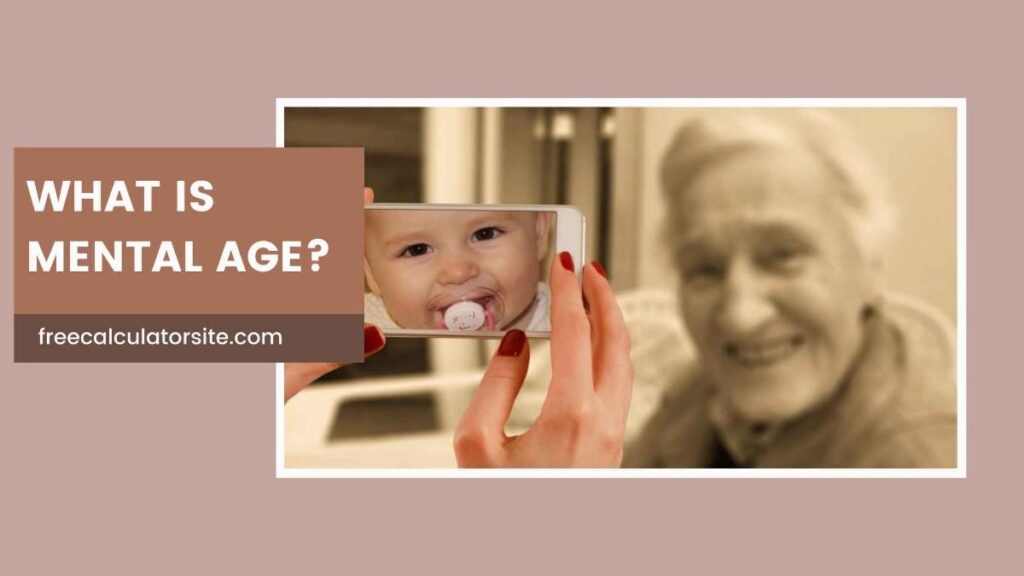
The concept of “mental age” is one of the most fascinating aspects of human psychology.
It offers a glimpse into how our cognitive abilities can be measured and compared to others, regardless of our actual chronological age.
Unlike chronological age, which is simply the number of years we’ve been alive, mental age reflects how we think, understand, and solve problems compared to the average person of a particular age group.
But what exactly is mental age, how is it determined, and why does it matter? Let’s explore this intriguing concept in depth.
Understanding Mental Age
The term “mental age” was first introduced in the early 20th century by French psychologist Alfred Binet and his colleague Théodore Simon.
They were tasked with developing a method to identify children who might need special educational assistance.
During their research, they observed that not all children of the same chronological age possessed the same level of intelligence.
This led to the idea that a child’s cognitive abilities could be expressed in terms of an age that corresponds to the average intellectual abilities of children in that age group.
Mental Age Defined: Mental age is a measure of an individual’s intellectual capabilities in comparison to the average intellectual performance of individuals in a specific age group.
For example, if a 10-year-old child has the intellectual abilities typical of an average 12-year-old, their mental age would be considered 12.
How Is Mental Age Calculated?
Mental age is often determined through standardized intelligence tests that measure various cognitive abilities, such as memory, problem-solving skills, language comprehension, mathematical reasoning, and logical thinking.
These tests are designed to assess the intellectual performance of an individual and compare it to the average performance of others in the same age group.
One of the most well-known measures that utilize the concept of mental age is the Intelligence Quotient (IQ) test.
The IQ score is calculated using the following formula:
IQ=( Mental Age/Chronological Age )×100
For example, if an 8-year-old child has a mental age of 10, their IQ would be calculated as:
IQ=(10/8)×100 = 125
An IQ score of 100 indicates that an individual’s mental age is exactly the same as their chronological age, meaning they are performing at an average level for their age group.
Scores above 100 suggest above-average intelligence, while scores below 100 suggest below-average cognitive abilities.
The Evolution of the Mental Age Concept
The concept of mental age has evolved since its inception.
Initially, it was primarily used to identify children who might need special educational support. However, as psychology advanced, the understanding of intelligence and cognitive development became more nuanced.
While the idea of mental age is still widely used, it is now recognized as just one aspect of a much more complex picture of human intelligence.
Modern intelligence testing takes into account a broader range of cognitive abilities, such as emotional intelligence, creativity, adaptability, and practical problem-solving skills.
As a result, mental age is no longer the sole measure of intellectual potential, but it remains a useful concept in understanding cognitive development and intelligence.
Also Read: What is Gestational Age?
The Role of Mental Age in Education
In educational settings, understanding a child’s mental age can be invaluable.
It helps educators identify students who may need additional support or enrichment.
For example, a child whose mental age is significantly higher than their chronological age may benefit from more advanced learning opportunities, while a child whose mental age is lower may need tailored interventions to help them reach their full potential.
By recognizing that children develop at different rates, educators can create more inclusive and effective learning environments that cater to the diverse needs of all students.
Mental Age and Its Relevance in Adulthood
While mental age is often discussed in the context of children, it is also relevant for adults.
Our cognitive abilities continue to develop, peak, and change throughout our lives.
For instance, an adult’s problem-solving abilities, creativity, and memory can be measured and compared to the average abilities of individuals at different ages.
Understanding mental age in adulthood can be beneficial in various settings, such as the workplace or during cognitive therapy.
It can help employers identify areas where employees might excel or require additional training, and it can aid mental health professionals in diagnosing and treating cognitive impairments.
Factors Influencing Mental Age
Several factors can influence a person’s mental age, including genetics, environment, education, health, and life experiences.
Here’s a closer look at how these elements play a role:
- Genetics: Genetic factors contribute to the development of intelligence, influencing cognitive abilities from birth. However, it is not the sole determinant, and mental age can vary significantly even among individuals with similar genetic backgrounds.
- Environment: A stimulating and supportive environment can foster intellectual growth, while a lack of stimulation can hinder cognitive development. Access to educational resources, exposure to diverse experiences, and interactions with others can shape an individual’s mental age.
- Education: Formal education plays a significant role in cognitive development, especially during childhood. However, lifelong learning and exposure to new challenges continue to impact mental age throughout adulthood.
- Health: Physical health, particularly brain health, can affect cognitive abilities. Factors such as nutrition, exercise, sleep, and mental well-being all contribute to maintaining and enhancing cognitive performance.
- Life Experiences: Diverse life experiences can shape an individual’s cognitive development. Problem-solving, critical thinking, and adaptability are often honed through experiences that challenge the brain.
The Limitations of Mental Age
While mental age provides valuable insights into cognitive abilities, it is not without its limitations.
Intelligence is a multifaceted construct, and mental age does not capture all the nuances of a person’s intellectual potential.
Here are some limitations to consider:
- Cultural Bias: Many intelligence tests are influenced by cultural factors, which can affect the accuracy of mental age measurements for individuals from diverse backgrounds.
- Narrow Focus: Mental age often emphasizes specific cognitive skills, such as mathematical reasoning or language comprehension, while neglecting other forms of intelligence, such as creativity, emotional intelligence, or practical problem-solving.
- Stigmatization: Labeling individuals based on their mental age can lead to stigma and may hinder personal development or create negative self-perceptions.
Mental Age in a Modern Context
Today, the concept of mental age has expanded beyond the academic and psychological realms.
It’s used in popular culture, humor, and self-awareness discussions.
For example, online quizzes and assessments often invite people to discover their “mental age,” which is meant to be a fun, lighthearted way to explore one’s personality and preferences.
Despite these playful uses, mental age remains a valuable tool for understanding human development, especially when used alongside other measures of intelligence and cognitive growth.
Conclusion
Mental age offers a fascinating lens through which we can view and understand intelligence and cognitive development.
By recognizing that mental age and chronological age are not always aligned, we gain insight into the unique ways people learn, think, and solve problems.
While it has its limitations, the concept of mental age remains a vital part of psychological assessment, educational planning, and our ongoing exploration of the human mind.
As we continue to learn more about intelligence, mental age will undoubtedly remain an important piece of the puzzle, helping us appreciate the diverse capabilities of the human brain.

Sayantika Karmakar provides expert insights on financial calculators in her blog posts.
